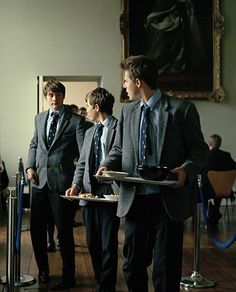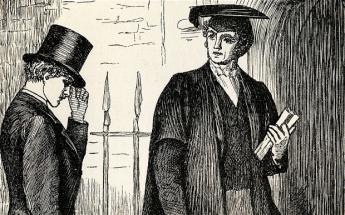Related Topics
Quakers: The Society of Friends
According to an old Quaker joke, the Holy Trinity consists of the fatherhood of God, the brotherhood of man, and the neighborhood of Philadelphia.
Academia (2)
continued.
Reminiscences
"The past is never dead. It's not even past." -- William Faulkner, Requiem for a Nun
Shakspere Society of Philadelphia
Maybe not the first, but the oldest Shakespeare club in America or possibly even the world, has kept minutes for over a hundred fifty years.
Customs, Culture and Traditions (2)
.
Great Depression (1929-1939)
New topic 2012-08-29 11:32:11 description
Right Angle Club: 2015
The tenth year of this annal, the ninety-third for the club. Because its author spent much of the past year on health economics, a summary of this topic takes up a third of this volume. The 1980 book now sells on Amazon for three times its original price, so be warned.
Right Angle Club 2017
Dick Palmer and Bill Dorsey died this year. We will miss them.
"Sir"
In 1938 when I was 14 years old, I entered a new virtual country with its own virtual language. That is, I went to an all-male boarding school during the deepest part of the worst depression the country ever had.

|
| Boarding School |
identified While it should be noted I had a scholarship, there is little doubt I was anxious to learn and emulate the customs of the world I had entered. My life-long characteristic of rebellion was born here, but at first, it evoked a futile attempt to imitate. Not to challenge, but to adopt what I could afford to adopt. The afford part was a real one because the advance instructions for new boys announced a jacket and tie were required at all meals and classes, and a dark blue suit with a white shirt for Sunday chapel. That's exactly what I arrived with, and let me tell you my green suit and brown tie were pretty well worn out by the first Christmas when I came home on the train for ten days vacation, the first opportunity to demand new clothes. First-year students were identified by requiring a black cap outdoors, and never, ever, walking on the grass. The penalty for not obeying the "rhine" rules was to carry a brick around, and if discovered without a brick, to carry two bricks. But that's not what I am centered on, right now. The thing which really bothered me was unwritten, equally peer-pressured by my fellow students, the custom of addressing all my teachers as Sir. The other rules only applied until the first Christmas vacation, but the unwritten Sir rule proved to be life-long.

|
| Sir |
And it was complicated. It was Sir, as an introduction to a question, not SIR!, as a sign of disagreement. You were to use this as an introduction to a request for teaching, not as any sort of rebuke or resistance. Present-day students will be interested to know that every one of my teachers was a man; my recollection is, except for the Headmaster's secretary, the Nurse was the only other female employee. The average class size was seven. Seven boys and a master. Each session of classes was preceded by an hour of homework, the assignment for which was posted outside a classroom containing a large oval maple table. Needless to say, the masters all wore a jacket and tie, most of the finest style and workmanship. They always knew your name, and always called on every student for answers, every day. Masters relaxed a little bit during the two daily hours of required exercise, when they took off their ties and became the coaches, but were just as formal the following day in class. I had been at the head of the class of what Time Magazine called the finest public high school in America, but I nearly flunked out of the first semester in this boarding school. It was much tougher at this private school than I felt any school had a right to be, but they really meant it. Over and over, the Headmaster in the pulpit intoned, "Of those to whom much is given, much is expected."
I had some new-boy fumbles. Arriving a day early, I found myself with only a giant and a dwarf for a company at the dining table. I assumed the giant was a teacher, but he was a star on the varsity football team. And I assumed the dwarf was a student, but he was assistant housemaster. One was to become a buddy, the other a disciplinarian, but I had them reversed, calling the student "Sir", but the master by his first name. Bad mistake, which I have been reminded of, at numerous reunions since then.

|
| Yale |
When I later got to Yale, I began to see the rules behind the "Sir," rule. In the first place, all of the boarding school graduates used it, and none of the public school graduates, although many of the public school alumni began, falteringly, to imitate it. Without realizing it, a three-year habit had turned out to be a way of announcing a boarding school education. The effect on the professors was interesting; they rather liked it, so it was reinforced. It had another significance, that the graduates who said "Sir" acquired upper-class practices, the red-brick fellows seldom did. The only time I can remember it's being scorned was eight years later, by a Viennese medical professor with a thick accent, and he was obviously puzzled by the significance. Hereditary aristocracy, perhaps. Indeed, I remember clearly the first time I was addressed as Sir. I was an unpaid hospital intern, but the medical students of one of the hospital's two medical schools flattered me with the term. In retrospect, I can see it was a way of announcing that graduates of their medical school knew what it meant, while the other medical school was just red-brick. Although the latter had mostly graduated from red-brick colleges, their medical school aspired to be Ivy League.
If you traveled in Ivy League circles, the Sir convention was pretty universal until 1965, when going to school tieless reached almost all college faculties, thus extending permission to students to imitate them. Perhaps this had to do with co-education, since the sir tradition was never very strong in women's colleges, and denounced by the girls when the men's colleges went co-ed. Perhaps it had to do with the SAT test replacing school background as the major selection factor for admission. Perhaps it was the influx of central European students, children of European graduates for whom an anti-aristocratic posture was traditional, and until they came to America, largely futile. Perhaps it was economic. The American balance of trade had been positive for many decades before 1965; afterward, the balance of trade has been steadily negative.
In Shakespeare's day, "Sirrah" was a slur about persons of inferior status. In Boswell's eighteenth Century day, his Life of Johnson immortalized his characteristic put-down with a one-liner. It survives today as a virtually text-book description of how to dominate an argument at a boardroom dispute. "Why, Sir," was and remains a signal that you, you ninny, are about to be defeated with a quip. It's a curious revival of a new way of immortalizing small-group domination, and a very effective one at that, which even the soft-spoken Quakers use effectively. Whatever, whatever.
The 90-plus years of tradition of addressing your professor as "Sir," is gone, probably for good, except among those for whom it is a deeply ingrained habit. Along with the tradition of female high school teachers, followed I suppose by male college professors.
Originally published: Thursday, November 26, 2015; most-recently modified: Thursday, May 09, 2019